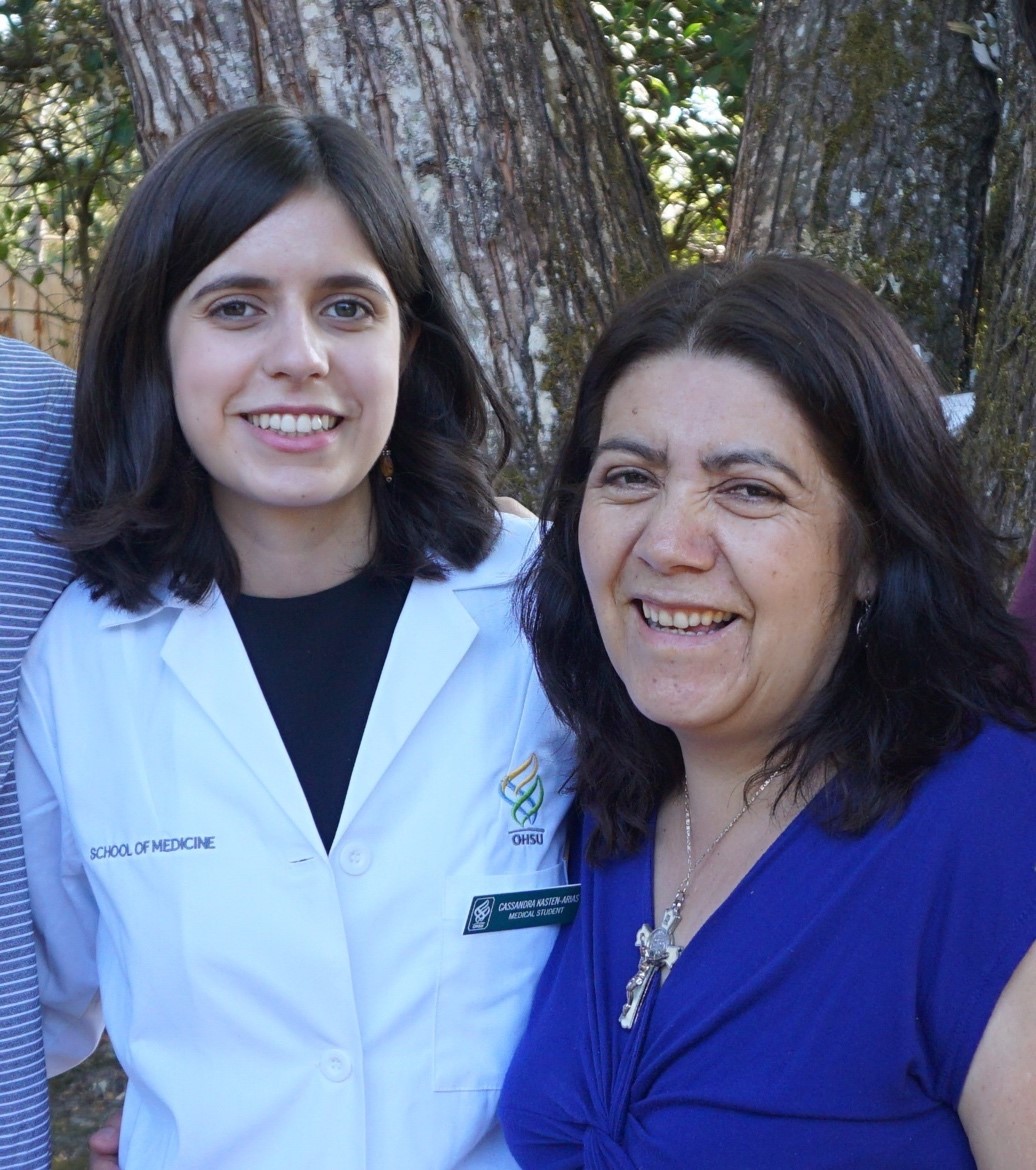

After graduating from UP in 2017, Cassandra Kasten-Arias worked as a scribe for an OBGYN at The Oregon Clinic and also volunteered as a Spanish medical interpreter at Southwest Community Health Center in Hillsboro (SWCHC), a free clinic that provided medical care to patients who were uninsured or underinsured. Both experiences confirmed her interest in becoming a physician and future patient advocate. Cassandra applied to medical school during this gap year in 2017 and is now a second-year medical student at OHSU and continues to volunteer in her community through the Latino Medical Student Association and in her role as Diversity & Inclusion representative for her medical school class.
2. Give a short description of your application process/tips for upcoming applicants:
I applied in my gap year to schools whose missions aligned with my own: ones that were committed to working with underserved populations and ones that valued service. My advice for finding the right school for you is to look through each school’s website and find what each school has to offer in terms of curriculum, electives, service opportunities, research opportunities, and anything else that matters to you. When I was searching for schools, I also looked for schools that had student organizations where I could build community. For personal statements, I centered my writing on showing my commitment and passions through anecdotes from my experiences. Each paragraph should contribute to your overall message of why you would be a good future doctor, why you want to study medicine, and what sets you apart from other applicants. Have people you trust read your personal statement and provide you with feedback.
3. How did your time at UP help you with your career choice, application, etc?
The enriching experiences and supportive mentors, advisors, and professors at UP helped me explore my passions for science and addressing the health inequities I witnessed growing up in my Latinx community. I have many professors and staff at UP to thank for giving me the tools to be successful and for believing in my potential. The professors and advisors I had at UP each cared about our learning and our futures. My Spanish professors empowered me with knowledge of my roots and helped me refine the Spanish I had grown up with at home. Spanish continues to be something I work on and is important to my goals as a physician. Research was something I had not fully experienced until coming to UP where I had the opportunity to work with Dr. Elinor Sullivan on the maternal and offspring impact of high fat diet consumption in non-human primates. Her guidance helped me grow as a scientist and critical thinker. One of my favorite classes at UP and one I continue to think about in medical school was “Suffering and Death.” Through this course I learned about death and dying in the lens of patients and family members, palliative care, and how a “good death” looks for various faiths. I also got to learn from a member of my community about her experience with Multiple Sclerosis before she passed shortly after the course.
The Career Center staff and my pre-health advisors were my advocates as I prepared to apply to medical school after I graduated. My pre-health advisors provided encouragement, study resources, and helped me navigate the complicated medical school application process. Staff from the Career Center helped me revise my personal statement while I was abroad, even setting up skype calls with me. They also gave me priceless advice and practice for both one-on-one and MMI style interviews which helped me feel prepared for my first interview.
4. What are your favorite memories of UP?
My best memories at UP include volunteering alongside my peers, studying abroad in Segovia, impromptu music sessions with friends in Mago Hunt, watching Moana with my peers in the Buckley Auditorium, participating in the International Night fashion show with traditional clothing from my Mexican heritage, celebrating the día de la virgin de Guadalupe on campus with my mom, and going on the Border and Rural Immersions. I walked away from both of these immersions with further motivation to work with these communities as a future provider and advocate.
5. What general advice would you give aspiring pre-health types?
Find your passions and support systems and continue to make time for them. Medical school, as with other pre-health programs, is challenging, but also very rewarding. When you feel overwhelmed or imposter syndrome is hanging over you, which all of us experience at some point, it helps to have something and someone you can turn to. Seek guidance from upperclassmen while in your program as they can be amazing mentors and offer helpful advice.